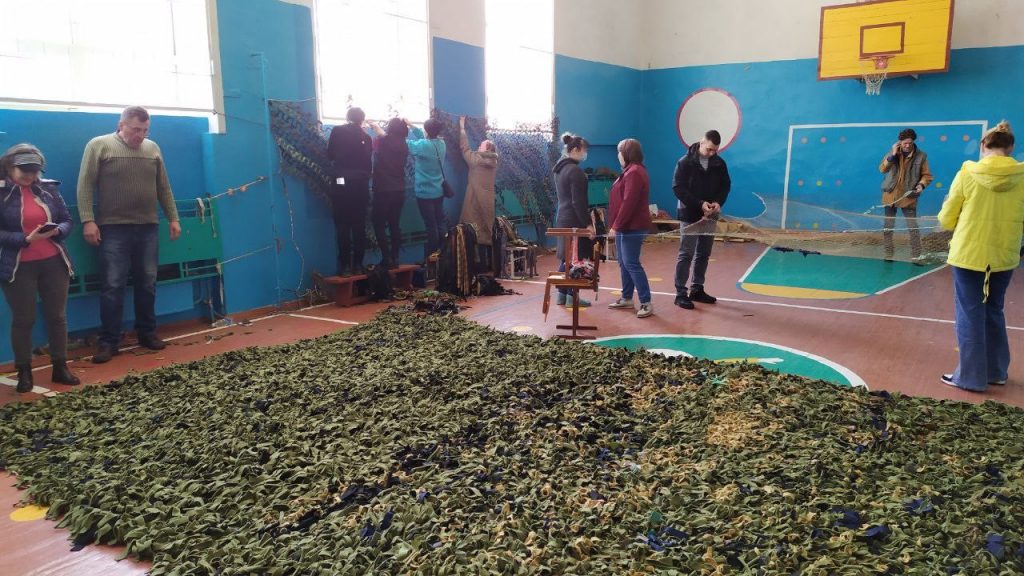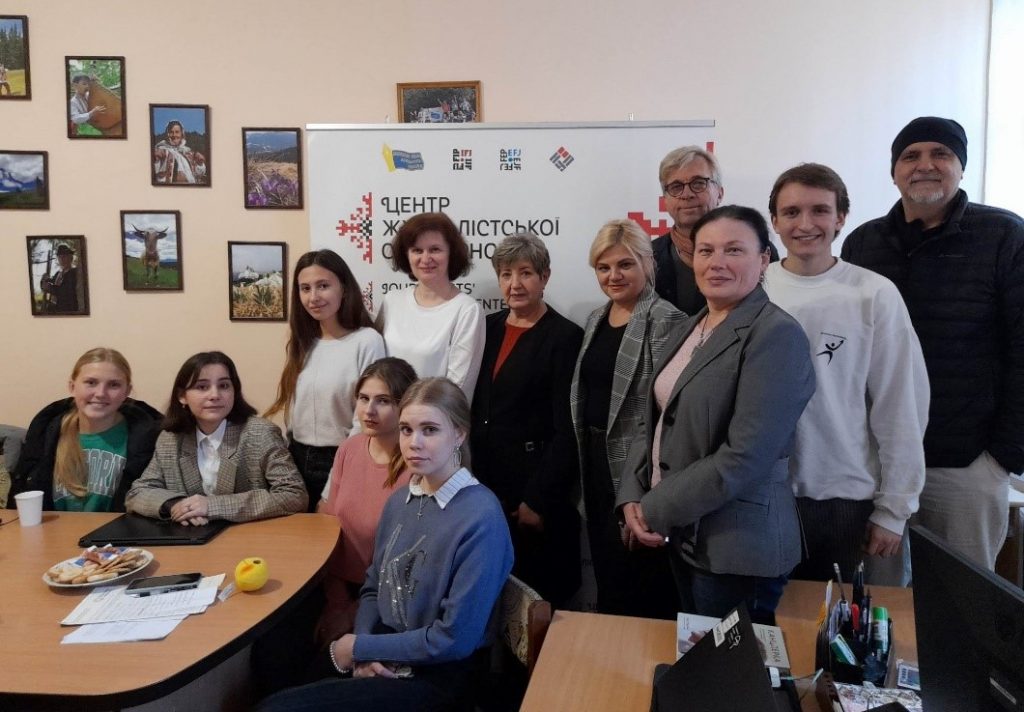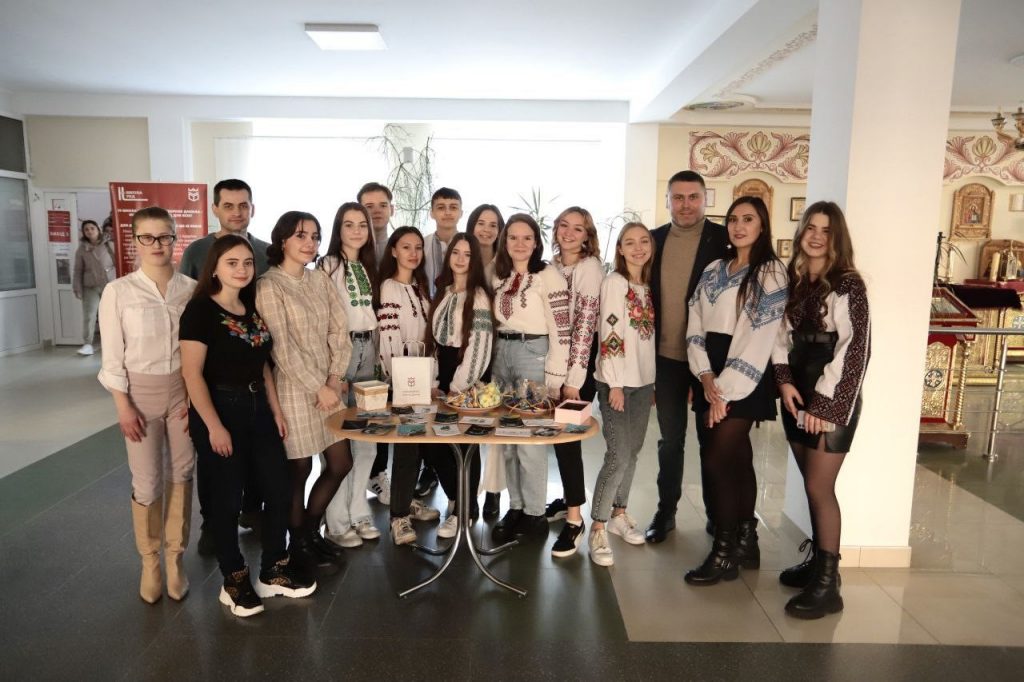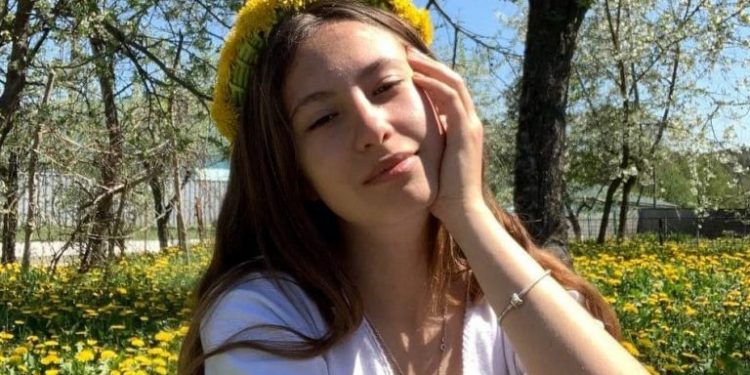Oleksandra Borzionokdreamt of becoming a journalist in her hometown, Lozova. A year ago, she enrolled at a university in Kharkiv. However, due to Russia’s invasion of Ukraine, she had to flee over a thousand kilometers to Ivano-Frankivsk, where she now pursues her journalism dream and supports the Ukrainian Armed Forces.
“I had to leave with a small bag containing only my phone, keys, and passport.”
A day before the full-scale invasion, tension was palpable in her dormitory. It felt like something bad was about to happen.
– On February 24, I was supposed to attend my English class at the university, but I woke up to loud explosions, probably like the rest of the country. Initially, I couldn’t comprehend what was happening or what to do next. But I gathered my thoughts quickly and went to my hometown that same day. Lozova is a two-hour drive from Kharkiv, so I was back home by evening. Leaving meant I had to leave most of my belongings in the dorm room. I didn’t even know if I’d be able to retrieve them – Oleksandra recalls.
Her education took a back seat. Like many Ukrainians, her life was sustained by three pillars: staying informed, staying in touch with loved ones, and volunteering. Additionally, her parents set a great example by being active volunteers.
– Along with my parents and friends, we started collecting bottles to make Molotov cocktails, and we even wove camouflage nets. This helped us keep our composure. Our town was very united in the early days of the war; everyone was constantly doing something, not sitting idle – she remembers.

Two weeks passed weaving camouflage nets, but in early March, her parents insisted on evacuating her from Lozova because the front line was rapidly approaching their town.
“There was a threat from the Izyum direction, and the front line was getting close, so on March 9, I left. I initially went to Khmelnytsky and stayed there for a while. During those days, I tried to stay in touch with my parents, but they restricted the information they shared with me, probably to keep me from worrying. However, their silence made me even more emotional and anxious. Sometimes, there could be no contact for several days, and they’d only call at night. It was very tough, – Oleksandra shares her experiences.
“I really like that now I have a lot of practical journalism experience.”
During the summer, Oleksandra decided to resume her studies but had to transfer to another university due to uncertainty. That’s how she ended up in Ivano-Frankivsk. The educational institution offered budget places to displaced students, so she became a first-year journalism student in September once again.
– I’d planned to change universities last year, and this year, everything worked out. I appreciate the practical journalism experience and the welcoming people here. Our department head introduced us to the Regional Journalists’ Association, and they’ve been providing crucial support, advice, and professional guidance. It’s essential to me, – says our interviewee.

The aspiring journalist hasn’t forgotten the passion her parents instilled in her since childhood – helping others. Now, together with her fellow students, she organizes various events to raise funds for the needs of the Ukrainian Armed Forces.
– Many of our professors and students are currently at the front, so we hold all sorts of fairs and charity quizzes to support them. Recently, at one of these fairs, I personally made postcards that we later sold, and the money went towards purchasing a car for our defenders, – Oleksandra shares.

“I’m confident that I will find my place in journalism back home.”
Fortunately, her hometown is free, and while she continues her education, she plans to stay in Ivano-Frankivsk. However, she believes that after completing her education, she will return to her small homeland and work in journalism.
– Journalism is developing rapidly in Ukraine right now. I don’t just want to get a diploma; I truly want to work in this field, improve my skills, and become a good journalist. This profession is crucial today because we can’t go even an hour without news. So, I’m confident that I will find my place in journalism back home, – concludes the future media professional Oleksandra Borzionok.
This series, titled Executed Free Speech, is created as part of a project Drawing Ukrainian And International Audience’s Attention To Serious Violations Of Human Rights And Crimes Against Journalists And Mass Media By The Russian Federation, which is performed by the National Union of Journalists of Ukraine, with support from the Swedish non-profit organization Civil Rights Defenders.
JOURNALISTS ARE IMPORTANT. Stories of Life and Work in Conditions of War is a cycle of materials prepared by the team of the NUJU with the support of the Swedish human rights organization Civil Rights Defenders.
#CRD

 THE NATIONAL UNION OF
JOURNALISTS OF UKRAINE
THE NATIONAL UNION OF
JOURNALISTS OF UKRAINE
















Discussion about this post